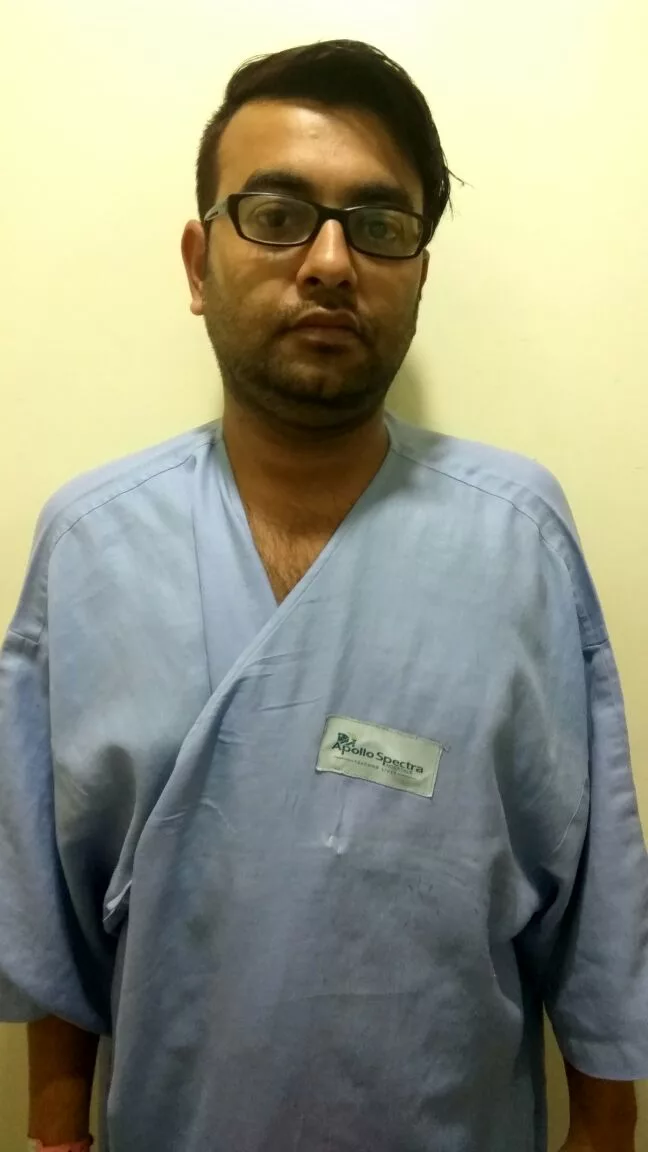Circumcision Surgery in Karol Bagh, Delhi
Circumcision refers to the removal of the foreskin from the penis. Medical circumcision or phimosis surgery may be the appropriate therapy for abnormality and redness of the penis that cannot be resolved with other treatments and chronic urinary tract infections. In the event of specific genital structure abnormalities or poor overall health, it is recommended.
To know more, contact urology doctors in New Delhi.
How is circumcision conducted?
The penis and its foreskin are cleaned during circumcision, and then the foreskin is removed. Parents of children who are undergoing circumcision should discuss pain relief options with their doctors.
A topical cream may be applied on the penis or an anesthetic may numb the region before the surgery. Before the procedure, acetaminophen is also occasionally given along with anesthesia.

Who qualifies for the procedure?
Older men and boys may need circumcision because of medical problems such as:
- Preventing recurring inflammation of the foreskin (phimosis)
- Penis infections, a tight foreskin that causes urination pain or spraying
Request an appointment at Apollo Spectra Hospitals, Karol Bagh, New Delhi.
Call 1860 500 2244 to book an appointment.
Why is the procedure conducted?
In several parts of the world, circumcision is a religious or spiritual practice. Personal hygiene or preventative health care is also among the reasons why circumcisions are carried out. It also reduces the likelihood of sexually transmitted diseases or penile cancer.
What are the benefits?
Circumcision may have several health advantages, including:
- Easy hygiene. Circumcision makes washing the penis easier. However, uncircumcised boys can be taught to wash under the foreskin regularly.
- Reduced risk of urinary tract infection. The risk of infection with the urinary tract is said to be minimal for men who have undergone circumcision. Early in childhood, severe infections might lead to renal problems later.
- The danger of sexually transmitted infections decreases. However, safe sexual practices continue to be essential.
- On an uncircumcised penis, retraction of the foreskin is sometimes difficult or impossible. It can lead to foreskin or penis head inflammation.
- Reduces risk of penile cancer.
What are the complications?
- The foreskin may have been cut too short.
- The foreskin may not heal properly.
- The rest of the foreskin may reattach to the penis, requiring surgical repair.
There isn't much evidence to support this. Circumcision in childhood - but not in adulthood - may lower the chance of penile cancer, although this illness is extremely rare, and the real risk factors include poor personal hygiene and smoking. Indeed, countries with the highest circumcision rates also have the highest incidences of penile cancer.
It will take around one week or up to ten days.
You need to follow some guidelines:
- Follow the directions from your doctor regarding medicines to take.
- Do not do any strenuous activities during the first week or at least ten days following the surgery.
- Do not wear tight clothing for a few days, such as tight shorts or briefs.
- After surgery, you may have to wait for up to six weeks to have intercourse.
At any age, men can get circumcised.
Symptoms
Our Patient Speaks
When I got admitted to Apollo Spectra, initially I faced some glitches, such as unavailability of drinking water and extra bed for the attendant, and electric sockets were not working. However, post-complaint, everything was arranged according to my liking and the staff sorted out all the issues. It was commendable that everyone at the hospital was always ready to help. This was certainly a plus point because issues crop up, but the way you rectify it matters. Overall, it was a good experience.
Gaurav Gandhi
Urology
Circumcision
Our Top Specialities
NOTICE BOARD
CONTACT US
CONTACT US
 Book Appointment
Book Appointment



.svg)
.svg)
.svg)
.svg)








